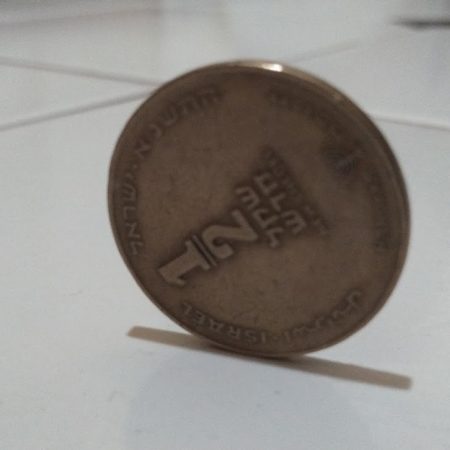
You know how sometimes things in the Bible just keep coming up in your life?
Well, for me, I keep bumping into this concept in the Bible of casting lots.
This goes way back to Exodus where God has told Moses (in great and specific detail) how to construct the tabernacle and all its furnishings and even how his brother, Aaron, is to be dressed as high priest. This includes an ephod (a long, sleeveless garment) to which is attached a breastplate which is adorned with twelve precious stones engraved with the names of the twelve tribes of Israel. When we get to Exodus 28:30, we find this:
And in the breastpiece of judgment you shall put the Urim and the Thummim, and they shall be on Aaron’s heart, when he goes in before the LORD. Thus Aaron shall bear the judgment of the people of Israel on his heart before the LORD regularly. (ESV)
Exactly what the Urim and Thummim were is unknown in this day and age. What we do know is that they were used in the casting of lots, which is mentioned 70 times in the Old Testament and seven times in the New Testament.
As far as we can tell from context, casting lots was a lot like rolling dice or flipping a coin. Some people believe they were one light stone and one dark stone, identical in size and shape, put into a pouch in the breastplate and withdrawn by the priest to reveal yes or no answers and/or determine guilt or innocence. The words “urim” and “thummim” have various translations and derivations, but they essentially mean, “cursed” or “faultless.” An example of using lots to determine guilt or innocence is found in Joshua 7 and in Joshua 14 we see the Urim and Thummim being employed for the very weighty decisions of dividing up the land of Israel among the 12 tribes.
They are also mentioned in Proverbs 16:33, where we find:
The lot is cast into the lap, but its every decision is from the LORD.
This leads me to believe there was more than one way to cast lots. Obviously, casting something into one’s lap is different than a priest reaching into a pouch and picking out a stone.
Whatever the case, the exact mechanism isn’t known, but we do know that people at the time believed God was responsible for the outcome of what the lots showed. The disciples cast lots to pick a replacement for Judas Iscariot. (Acts 1:26)
And in that, I find something amazing.
I have been on more than one committee formed to study a situation and make a decision which very easily could have been made with the flip of a coin. Typically, such a committee meets over and over again while vacillating between the choices at hand, spends a great deal of time trying to smooth over and mitigate the ensuing and inevitable personality conflicts, gathers endless conflicting information and opinions, and finally comes to the conclusion they think the boss is most likely to agree with.
God, on the other hand, has a much more efficient method.
“Flip a coin. I got this, folks.” (My paraphrase.)
It’s a beautiful, genius way to handle things.
I mean, if we believe that God is absolutely sovereign and in control of anything and everything, what are we worried about? If He can create the entire universe simply by speaking it into being, why can’t HE decide if the carpet in the sanctuary should be light beige or dark beige?
(Actually, if we truly gave Him a choice, I think He’d pick blue and purple and scarlet with threads of gold woven in like in Exodus 26. But I digress.)
The glory of the whole plan is that a decision gets made. God, in His incredible wisdom, mercy, and grace spares us from endless meetings and the ensuing drama of personality conflicts.
We roll the dice, we flip the coin, and we move on.
Done.
As I have aged, I’ve come to realize that many of the decisions I have agonized over really didn’t matter. I could have been just as happy with either decision I could have made and, on more than one occasion, the inability to make a decision resulted in not making a decision, which was effectively a decision to do nothing.
And, more often than not, that turned out to be the worst possible decision.
Obvious exceptions to this are accepting Jesus into my life and marrying my lovely wife, both of which I can categorically state are not to my glory, but His.
Not that long ago, somebody posted something on Facebook that was of the same kind of pure genius. This person noted that when a man and woman try to decide where they should go out to eat, the ensuing discussion can rival the Nobel Peace Prize selection process for drama and time consumed. This Solomon-like individual suggested that the man say to the woman, “Honey, guess where I am taking you to dinner?”
And whatever she said, that is where they ate.
Genius.
Today’s Praise
“Be strong, and let us fight bravely for our people and the cities of our God. The LORD will do what is good in his sight.” 1 Chronicles 19:13 (NIV)


Thank you for this. I too have read the stories of how lots were used to discover God’s direction also the Fleece of Gideon. Somehow it never occurred to me that I could implement this technology to relieve anxious questing after God’s will in any situation. Cool
I don’t know how long ago you posted this so forgive me if my response is untimely.